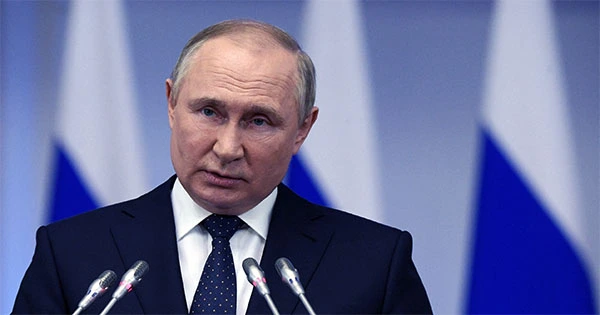World leaders are unprepared for a “new era” of complex and unpredictable threats to peace, according to research from the Stockholm International Peace Institute (SIPRI). The paper, titled “Environment of Peace: Security in a New Era of Risk,” examines how environmental issues like climate change and resource scarcity intersect with security, war, and COVID-19’s aftermath, and then provides suggestions to governments and other decision-makers. The text of the report “paints a vivid picture of the increasing security threat,” the Institute claimed in a news release. “It adds that the number of state-based armed conflicts approximately quadrupled (to 56) between 2010 and 2020, as did the number of combat casualties.”
“The number of refugees and other forcibly displaced individuals has also more than quadrupled, reaching 82.4 million.” After years of cutbacks, the number of operationally deployed nuclear weapons grew in 2020, and military spending reached $2 trillion for the first time in 2021.” According to the analysis, the rise in fighting began well before Russia’s invasion of Ukraine. The interplay between the “darkening security horizon” and environmental deterioration, according to the authors, produces new and more complicated hazards that mankind has yet to fathom.
The authors state in the report, “It is apparent that the two crises do interact.” “Countries with the highest levels of ecological vulnerability are statistically more likely to have the most fragile peace. They are also characterized by fragility and a lack of resiliency. These countries contributed little to the global environmental disaster, but they face the brunt of its consequences. Half of the UN peacekeeping missions are now underway in countries that are most vulnerable to the effects of climate change. These connections aren’t through chance.” Furthermore, the problem is escalating as the climate deteriorates and the security horizon darkens.
“Climate change and the broader environmental problems contribute to insecurity beyond their immediate consequences,” they conclude. “The research demonstrates that they frequently cause social and political unrest, which, if left unaddressed, can lead to bloodshed. Armed conflict not only harms the environment, but it also makes it more difficult to develop effective environmental governance. Confrontation, disagreements, and confrontation sour the international climate for finding cooperative solutions to environmental problems.” The research cautions that time is running out to address these issues. In a news statement, SIPRI Director and Environment of Peace author Dan Smith noted, “The difficulties are great, and the timeline is short.”
“Governments must lose sight of the deep issues that lie ahead, even as they cope with acute events like the invasion of Ukraine or the COVID-19 epidemic.” The authors hope that those who read the report will take away three things: that there is an urgent need to anticipate problems arising from the link between environmental and security issues, that action on reducing carbon and greenhouse gas emissions is needed now before it exacerbates other security challenges, and that “there is hope.” The team writes in the paper, “Humanity possesses the knowledge and abilities to escape the situation in which we find ourselves.” “We may take heart from instances of governments, civic society, local communities, and global corporations working together to successfully solve dangerous circumstances. It is necessary to learn from them and expand.”
















